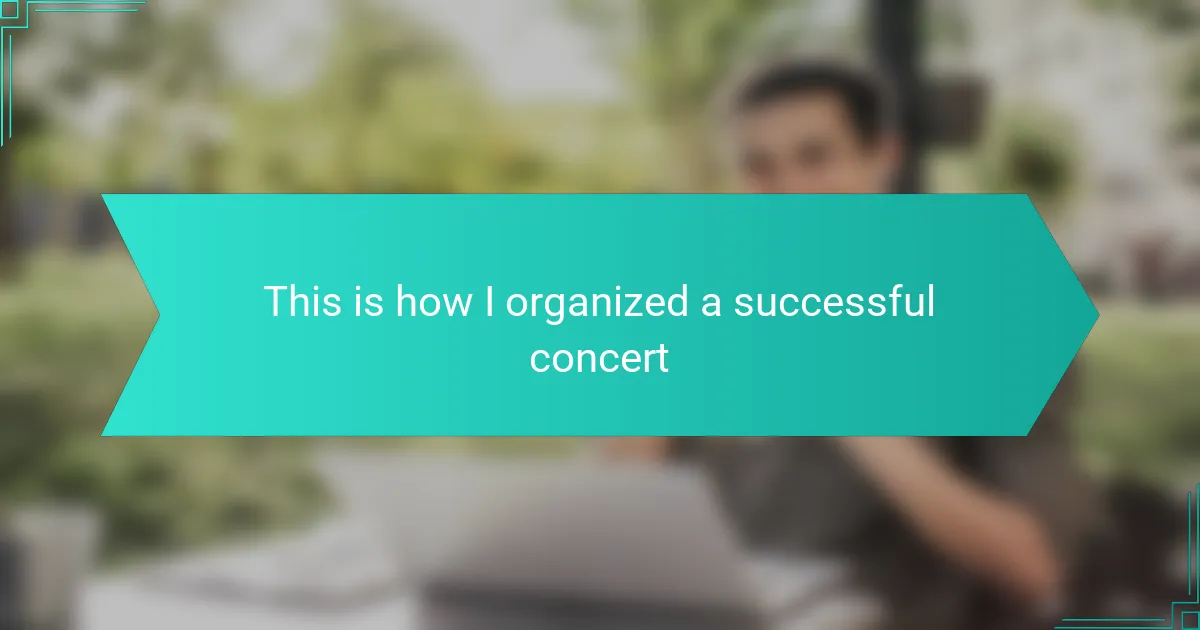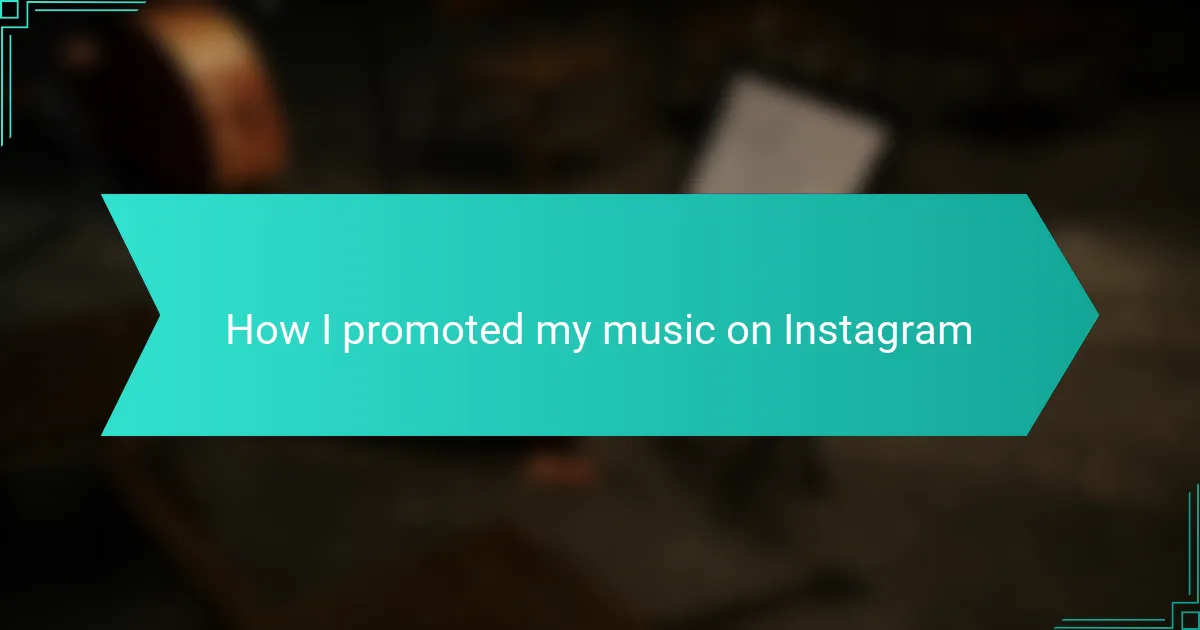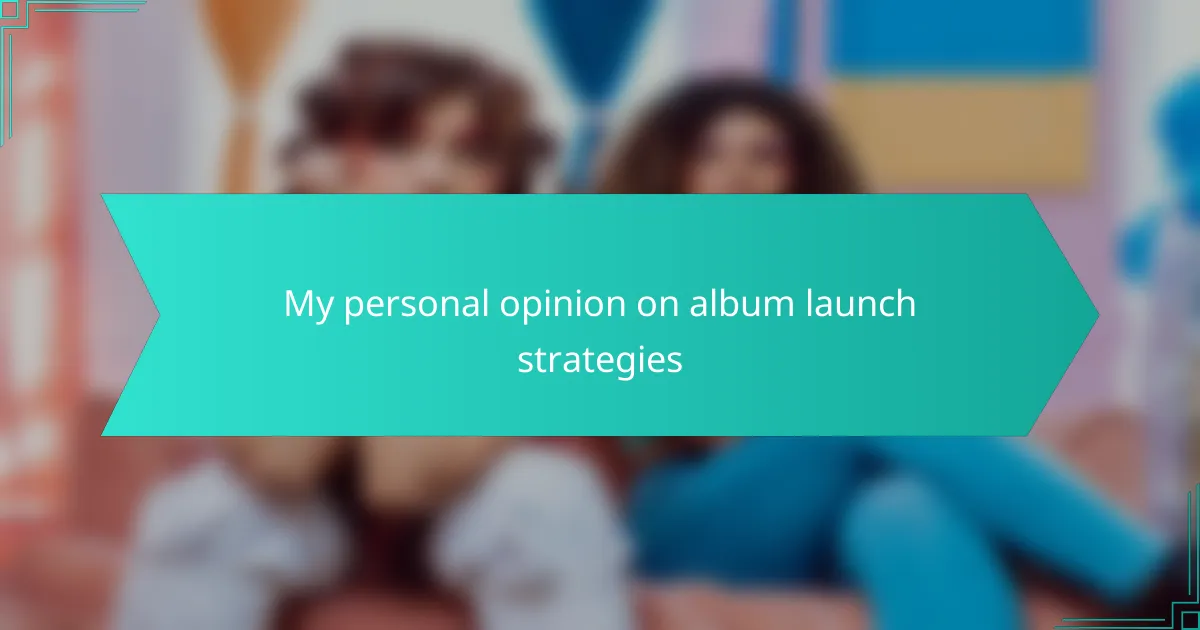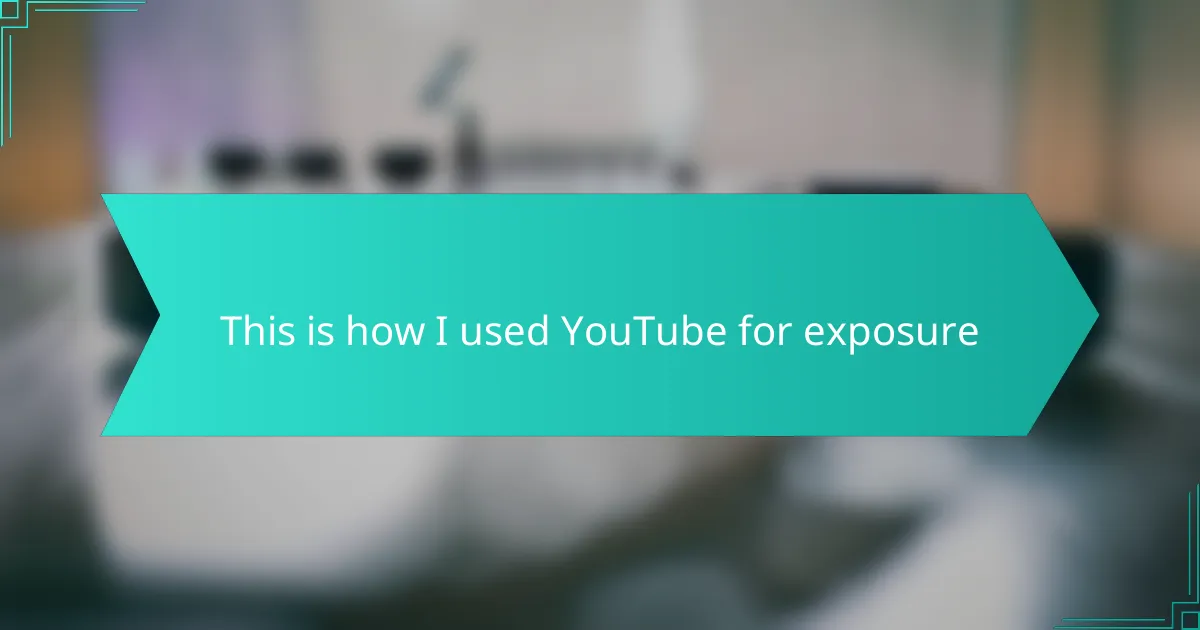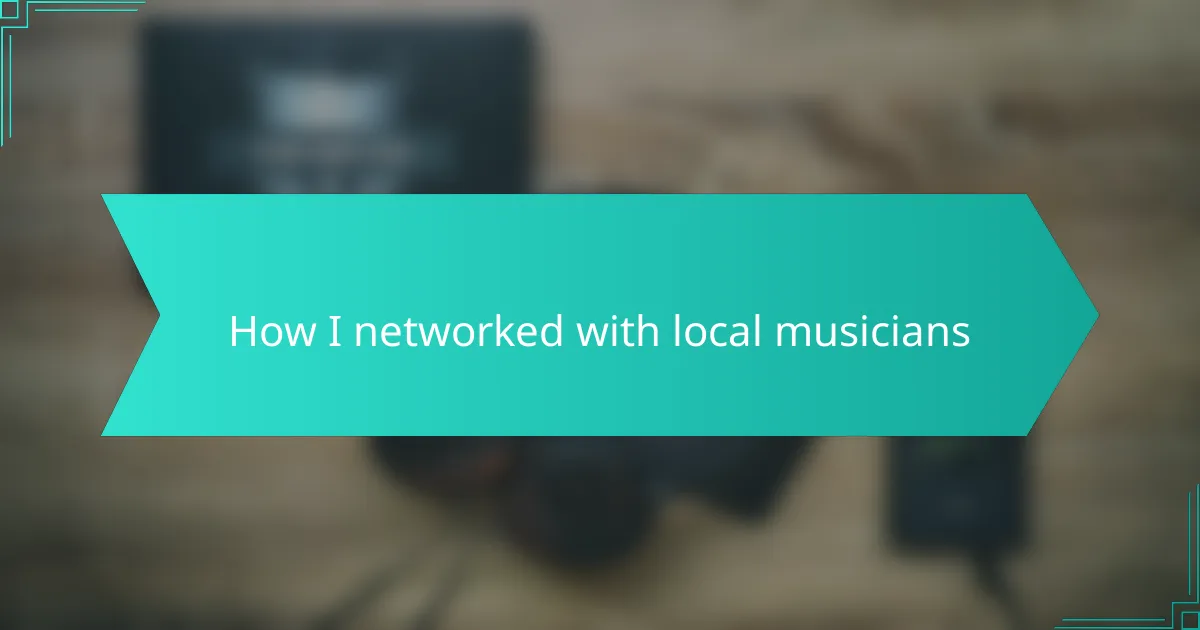Key takeaways
- Effective concert planning is crucial, involving budgeting, scheduling, promotion, and logistics to ensure a successful event.
- Building a strong network with local vendors and utilizing social media can significantly enhance concert attendance and audience engagement.
- Flexibility and adaptability during unforeseen challenges can turn potential issues into unique opportunities for memorable experiences.
- Seeking feedback from attendees post-event is essential for improving future concerts and creating more fulfilling experiences for both artists and fans.
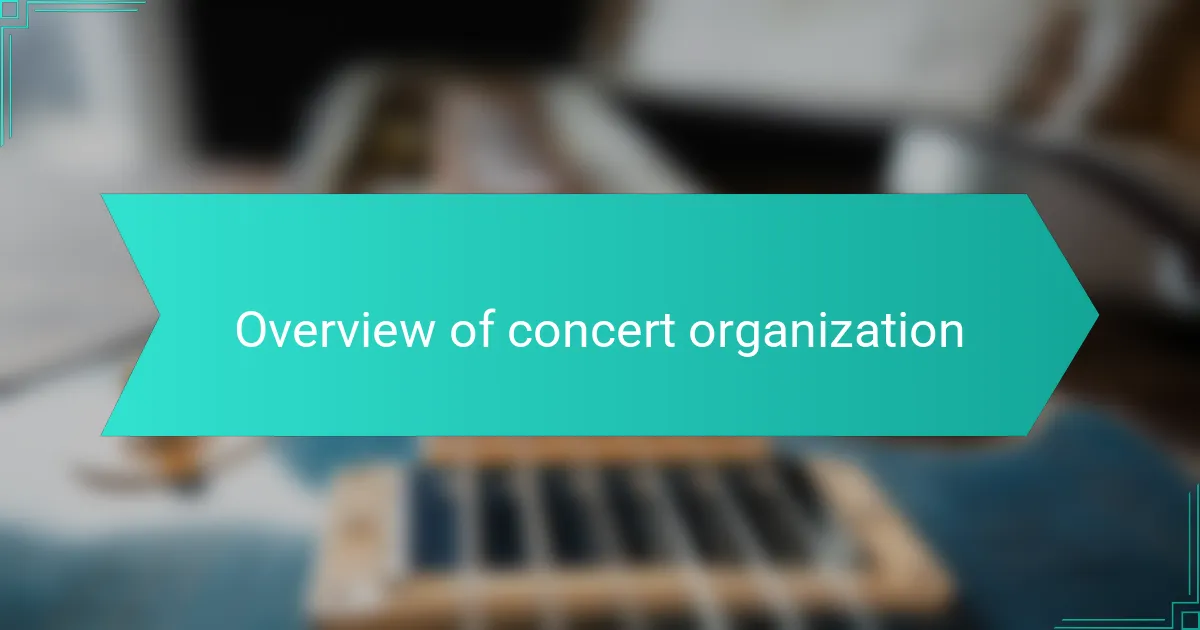
Overview of concert organization
Organizing a concert is much like piecing together a puzzle. Each element, from the venue to the lineup, plays a crucial role in creating a cohesive experience. I remember my first concert; the thrill of coordinating everything made every late night worth it.
I often reflect on the importance of planning. Setting clear timelines and deadlines helps in breaking down tasks, making the process less overwhelming. Have you ever felt lost in a sea of logistics? Creating a detailed checklist can guide you through potential pitfalls and keep things on track.
Budgeting is another critical aspect that can’t be overlooked. Balancing costs while ensuring the quality of the event requires careful consideration. During my experience, I learned to prioritize essential expenses and be creative with resources, which not only saved funds but also brought a unique flair to the event.
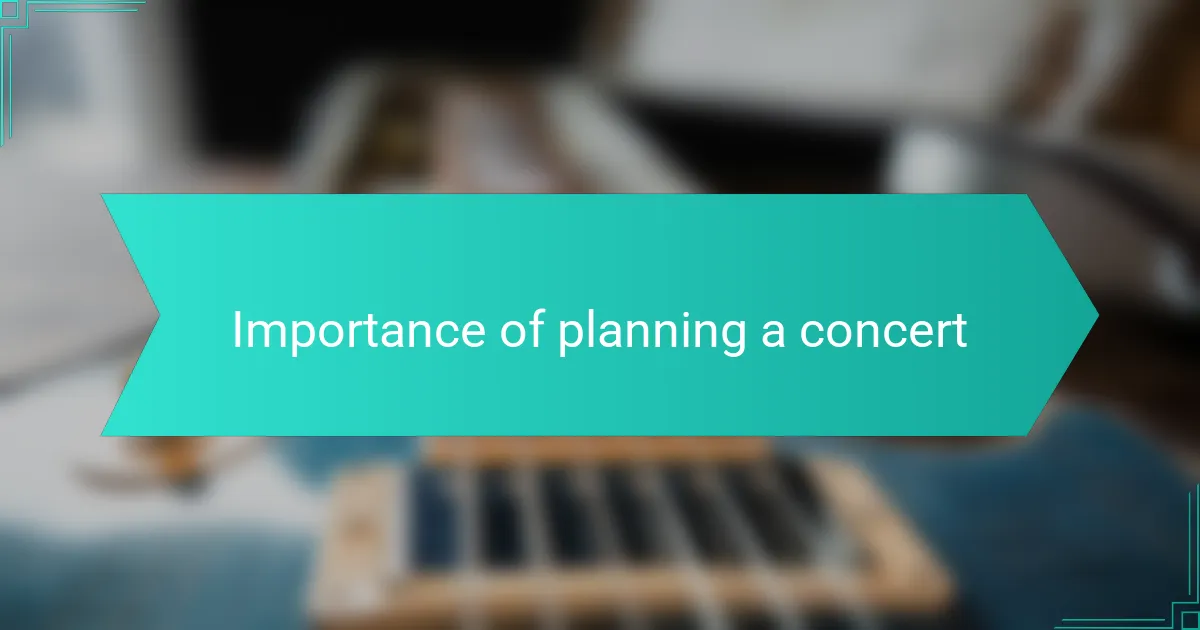
Importance of planning a concert
Planning a concert is crucial for its success. From my personal experience, thorough planning can be the difference between a memorable event and a chaotic one. I recall a time when I underestimated how much preparation was needed, and the result was a scramble that left both the audience and artists feeling unsatisfied.
Additionally, a well-organized concert not only fulfills the expectations of the audience but also enhances the reputation of the artists. Effective planning involves budgeting, scheduling, and logistics, which help to ensure everything goes smoothly on the day of the event. I learned that when every detail is meticulously arranged, it allows me to focus on what truly matters – the music and connecting with the audience.
Here’s a comparison of key elements involved in concert planning:
| Aspect | Importance |
|---|---|
| Budgeting | Helps control expenses and maximize profits |
| Scheduling | Ensures that all participants are available and prepared |
| Promotion | Boosts attendance and builds excitement |
| Logistics | Guarantees a smooth operation on the day of the event |
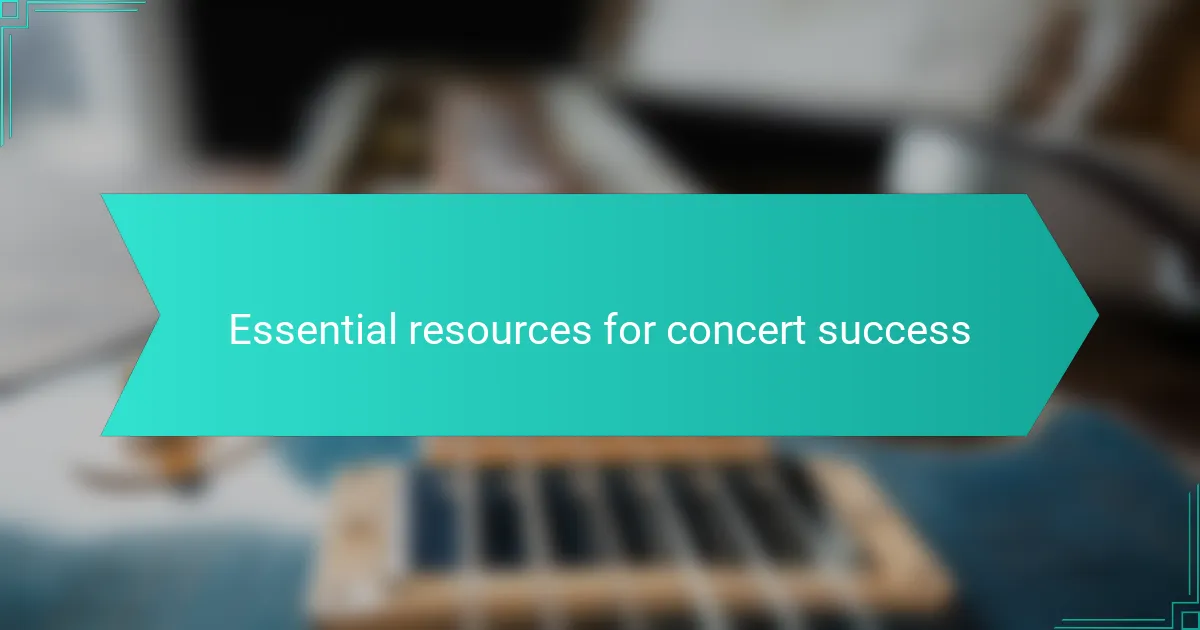
Essential resources for concert success
When it comes to essential resources for concert success, I can’t emphasize the impact of networking enough. Building relationships with local vendors, sound engineers, and marketing professionals has made a noticeable difference in my events. Think about it – having reliable contacts can streamline processes and provide access to resources that aren’t readily available to everyone.
Another vital resource is marketing. I remember organizing my first concert and realizing that without effective promotion, the turnout would likely be disappointing. Using social media strategically not only built anticipation but also fostered a sense of community. Have you explored the full potential of platforms like Instagram or Facebook for your events? I’ve witnessed firsthand how engaging content can significantly boost attendance, turning potential fans into loyal supporters.
Finally, don’t underestimate the value of technology. From ticketing platforms to sound equipment, modern technology plays a pivotal role in enhancing the concert experience. I once integrated a live-streaming option for fans unable to attend in person, which opened up additional revenue streams and expanded our reach. Isn’t it fascinating how technology can transform the way we connect with our audience? Embracing these tools can elevate your concert to new heights.
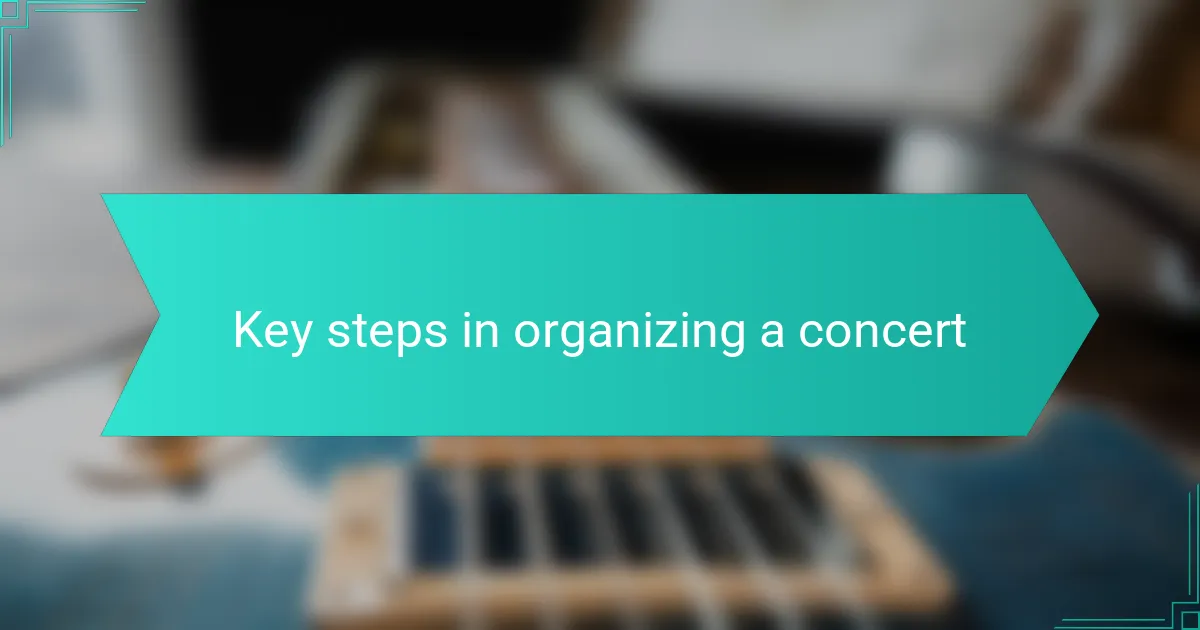
Key steps in organizing a concert
Organizing a concert is a multifaceted process that requires careful planning and attention to detail. From securing the venue to promoting the event, every step plays a vital role in ensuring a successful performance. I remember when I organized my first concert; I was overwhelmed but learned quickly that organization and communication are key.
One essential step is selecting the right venue; it should resonate with your music style and audience. I chose a local theater that perfectly matched the vibe of my concert, and the atmosphere truly elevated the experience for both the performers and attendees. Promotion comes next; using social media effectively can draw in a larger crowd than you might expect. For me, crafting authentic posts that shared my passion for the music made a significant difference in engaging potential fans.
Here’s a comparison of some key steps in organizing a concert:
| Step | Description |
|---|---|
| Venue selection | Choose a location that fits your style and audience size. |
| Promotion | Utilize social media and local networks to build excitement. |
| Rehearsal planning | Schedule ample time for performers to practice and iron out any kinks. |
| Logistics | Organize equipment, soundchecks, and transportation for a seamless event. |
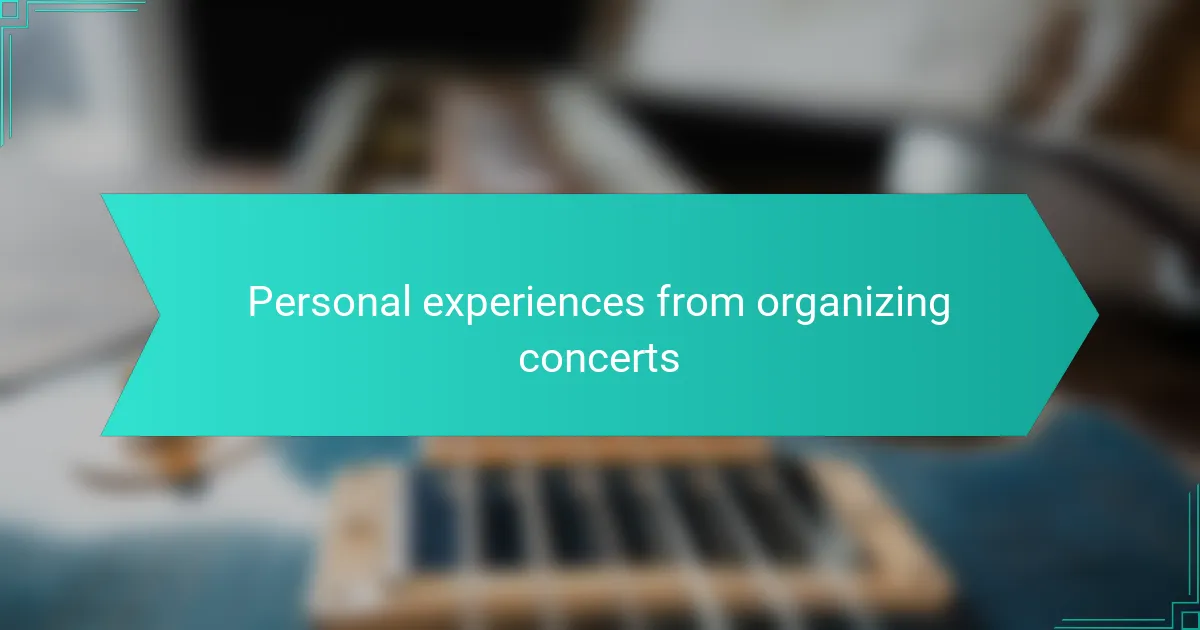
Personal experiences from organizing concerts
When I look back at my own experiences organizing concerts, I often recall how exciting yet nerve-wracking it can be. At my first event, I was consumed by a mix of optimism and anxiety. I believe that those fluttery moments right before opening the doors make it all worth it. Have you ever felt that rush just before an audience gathers? There’s nothing quite like it.
During one particular concert, I experienced the power of teamwork firsthand. I had assembled a crew of friends who were just as passionate about the music as I was. Their energy was infectious, pushing us to work harder and think creatively. I remember one moment when everything seemed to go wrong, but thanks to their support, we turned a last-minute setback into a memorable on-stage moment. That’s when I realized the value of having a dedicated team behind you.
Another lesson I learned was to expect the unexpected. There was a time when a headliner had to cancel just days before the concert. Initially, I panicked. However, I quickly reached out to a local band that I admired, and they stepped in. Not only did they fill the gap, but they completely stole the show and attracted a different crowd than I had anticipated. Isn’t it interesting how challenges can lead to unforeseen opportunities?
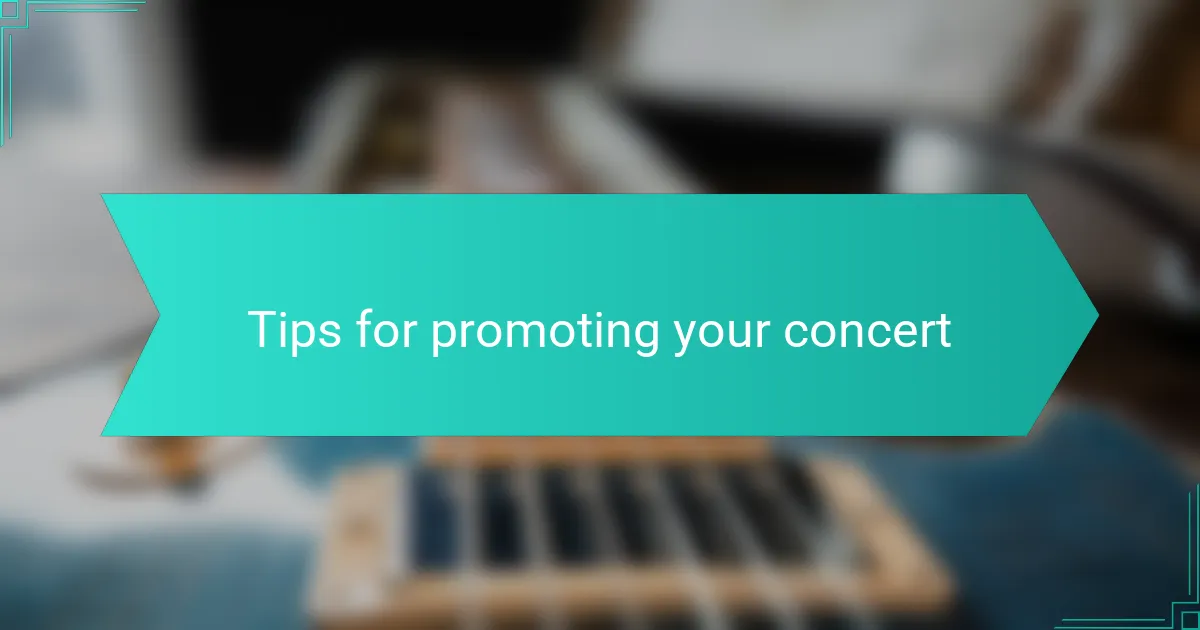
Tips for promoting your concert
Promoting your concert effectively can be the key to a successful turnout. One method that worked well for me was harnessing the power of local partnerships. Collaborating with local businesses, such as coffee shops or music stores, not only helped to spread the word but also created a sense of community. Have you considered who in your neighborhood might want to support your event? Their help can amplify your reach exponentially.
Social media is a game-changer for concert promotion. I vividly recall my first attempt at making an event page on Facebook. The excitement was palpable, and I found that engaging potential attendees with sneak peeks, such as behind-the-scenes photos or clips of rehearsal, built anticipation. Don’t just post once and forget; keep the momentum going by updating frequently to capture and retain attention.
Additionally, consider using targeted ads on platforms where your audience spends their time. When I first ventured into paid advertising, I was amazed at how quickly it reached people who had never heard of my music before. Have you experimented with ads yet? Tailoring your promotion based on demographics can pinpoint the right fans and maximize attendance, transforming your concert into a vibrant experience filled with enthusiastic supporters.
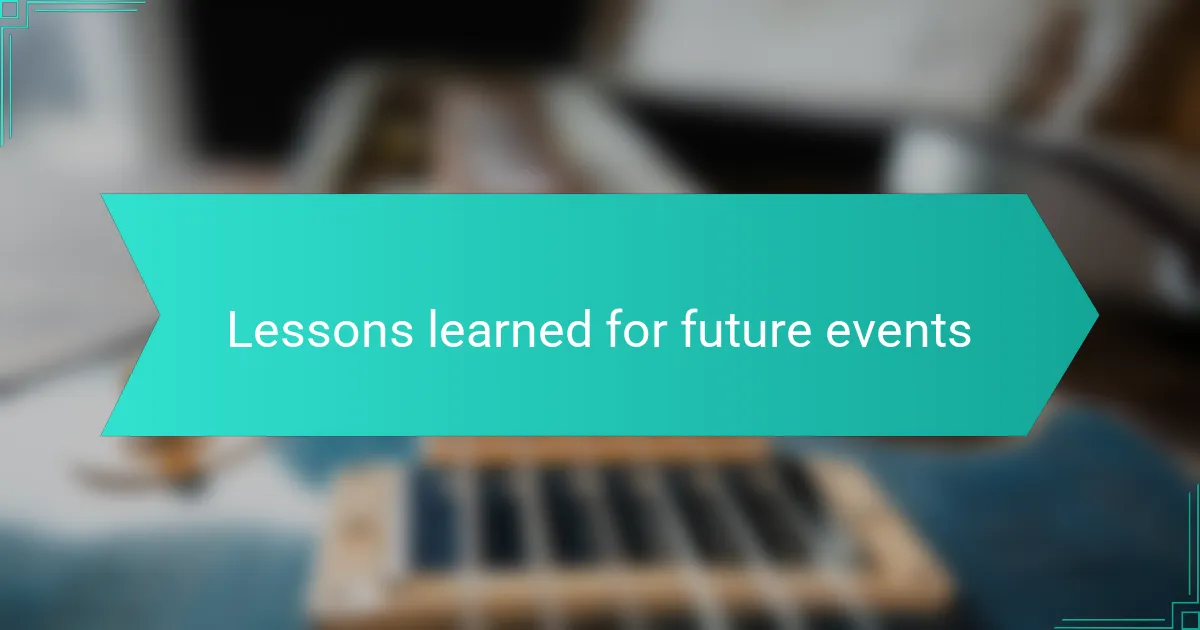
Lessons learned for future events
Reflecting on my concert organization journey, I’ve learned that flexibility is essential. I once faced a situation where a key piece of equipment malfunctioned just hours before the show. Instead of panicking, I quickly shifted plans and communicated with my team. It was a reminder that being adaptable can turn potential disasters into memorable moments. Have you ever had to pivot unexpectedly during a big event? Embracing change can lead to creative solutions that enhance the overall experience.
Another lesson revolves around the importance of feedback. I made it a point to seek input from attendees after my events, and their insights significantly shaped future concerts. I remember a fan mentioning how much they appreciated the interaction with the artists. This feedback encouraged me to incorporate more meet-and-greet opportunities in my next shows. How often do we really take the time to listen to those who support us? Understanding the audience’s perspective can refine our approach and lead to more fulfilling experiences for everyone involved.
Finally, I cannot stress enough the significance of post-event evaluation. After every concert, I gathered my team to discuss what worked and what didn’t. This reflection isn’t just a chore; it’s an opportunity for growth. I look back fondly on those discussions; they revealed patterns and areas for improvement. Isn’t it fascinating how analyzing past experiences can prepare us for future successes? Embracing the lessons learned makes each concert a stepping stone toward greater achievements.
